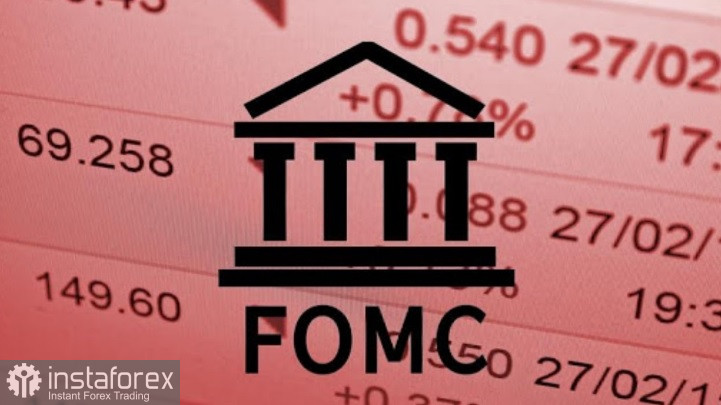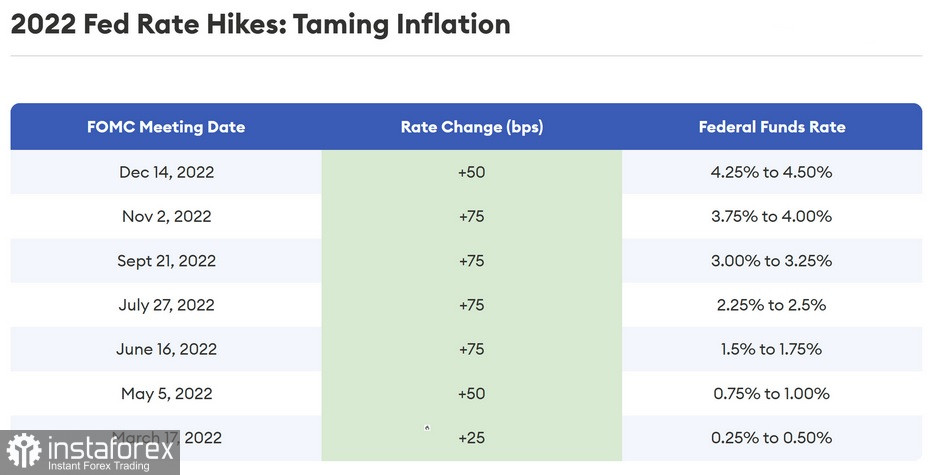
Before the Fed holds its first committee meeting for this year, a report on core PCE will be released, which will definitely have an impact on the decisions the central bank will take regarding monetary policy. Forecasts say the figure will continue to fall, from 4.7% y/y in November to 4.4% y/y in December.
Inflation has been falling steadily in the US, thanks to the Fed's extremely aggressive monetary policy. The bank has kept the base rate between 0 and a quarter percentage point for a long time in an attempt to lower inflation, which spiraled in 2021 and rapidly approached a 40-year high.

At first, the Fed raised interest rates by a quarter percentage point, which is the first increase since 2018. It was followed by a series of more aggressive rate hikes, which determined the second half of 2022. The bank only reduced the pace of hikes from December awards.
Many assume that the Fed will continue this cycle, but at its meeting next week announce a gradual slow down of interest rate hikes. This is in line with the estimates of the CME FedWatch tool, which says there is a 98.1% chance that the FOMC will raise rates by 25 basis points. Is said there is only a 1.9% chance that the bank will take a more aggressive stance of raising rates by 50 basis points.
Meanwhile, the Fed itself forecasts that the base rate will rise above 5% and not lower for the whole year and possibly the first or second quarter of 2024. This raises many questions, the most important of which is whether the bank will maintain such an aggressive monetary policy despite recent data indicating that inflation in both the US and worldwide has already peaked and is falling every month. Global inflation hit a six-month low in December, but back then, the Fed said it is unlikely to change its hawkish stance.





















